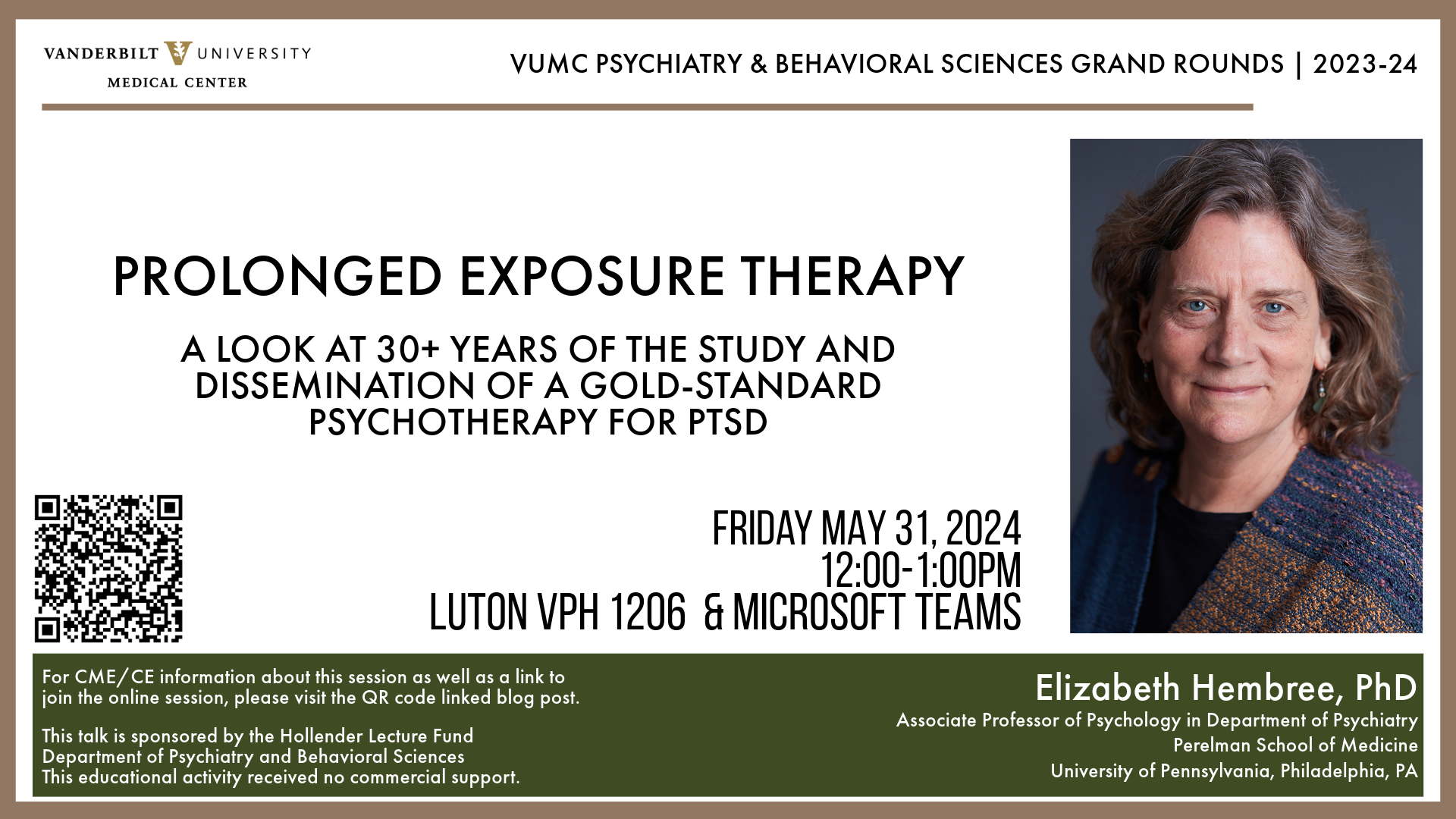
"Prolonged Exposure Therapy: A Look at 30+ Years of the Study and Dissemination of a Gold-Standard Psychotherapy for PTSD"
Elizabeth Hembree, PhD
Associate Professor of Psychology in Department of Psychiatry
Perelman School of Medicine
University of Pennsylvania, Philadelphia
The first randomized controlled trial of Prolonged Exposure (PE) for PTSD was published in 1991. A vast amount of research on PE has been conducted since that time by independent research groups around the world, with survivors of a range of traumatic events, and with focus on a number of features including complexity of patient population and modes of treatment delivery. A program to disseminate PE and its recent implementation with a few specific populations will be highlighted.
Dr. Hembree’s clinical work and research has been primarily focused in the area of anxiety disorders and on the psychological impact of trauma, the treatment of individuals with trauma-related disorders, and the dissemination of cognitive behavioral treatment for post-traumatic stress disorder (PTSD). She was a faculty member for 20 years in the Center for the Treatment & Study of Anxiety (CTSA), where Prolonged Exposure (PE), a gold standard treatment for PTSD, was developed. Dr. Hembree has been involved in numerous clinical trials evaluating the efficacy and effectiveness of cognitive behavioral treatments for PTSD over the past 30 years. She has frequently provided workshop trainings in cognitive behavioral treatment of PTSD both in the US and abroad. Her expertise in trauma and PTSD has benefited the United States Department of Veterans Affairs in their efforts to train their mental health workers to provide effective, evidenced based treatments to men and women veterans of war. She has published numerous articles and book chapters in the PTSD area, and has served on the editorial boards of the Journal of Traumatic Stress and the Journal of Anxiety Disorders.
Objectives
The activity is designed to help the learner
- Describe the three core components of prolonged exposure therapy.
- List three populations of trauma survivors with PTSD that have shown positive outcomes (e.g., reduction of severity of PTSD, depression) following treatment with PE.
- Describe the strength of evidence for PE outcome (e.g., effect size) when compared to other trauma-focused CBTs, non-specific comparison treatments (e.g., relaxation training, supportive therapy), and waitlist control from meta-analyses of randomized controlled trials.

Sponsored by the Hollender Lecture Fund, Department of Psychiatry and Behavioral Sciences. This educational activity received no commercial support.